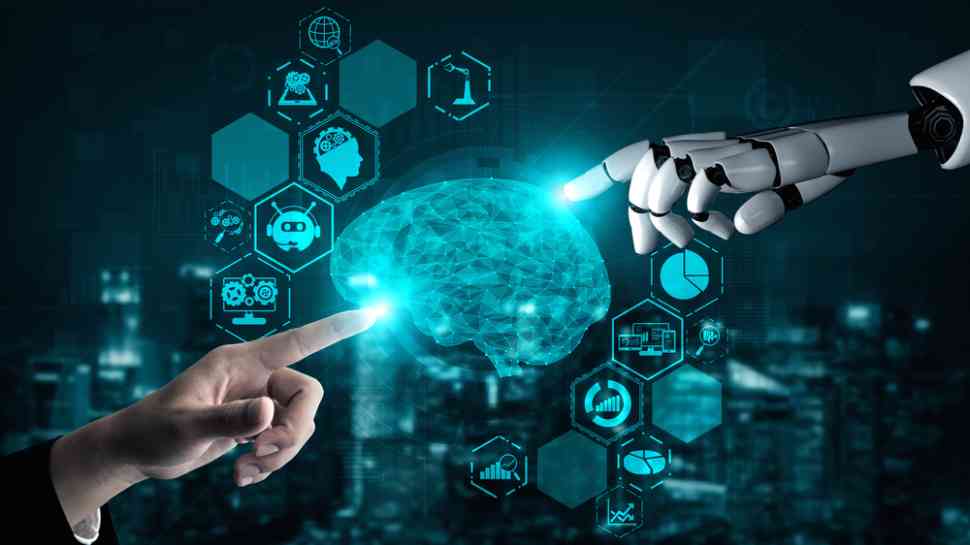The Evolution of AI And Scientific Research

In late 2016, the famous theoretical physicist Stephen Hawking issued a warning note about the ever-accelerating progress of Artificial Intelligence (AI), arguing that it will be “either the best or the worst that has happened to humanity.” Many have shared this concern, while others have condemned it as an old-fashioned reaction, perhaps because Hawking belongs to an older generation, more phobic of new technologies. However, All of us have watched dystopian films, and we were a little worried about post-apocalyptic nightmares, which follow a sudden diversion of an AI system since this requires self-awareness and self-motivation.
We are indeed sliding into unexplored paths. Our everyday life will be transformed instantly. But how? This can be our opportunity to reach technological achievements similar to the example of electricity. On the other hand, it may also confirm the dystopian scenarios of Hollywood. Let us not hasten to prejudge the future. We tend to be optimistic or pessimistic, depending on our temperament and our recruits. A more calm and informed approach may be the safest route to follow. In this direction, we present to you the following research.
Deep Mind and scientific approaches
Deep Mind was acquired by Alphabet for 400 million British pounds a few years ago. A company research team published a scientific article about how artificial intelligence becomes aggressive in competitive and stressful environments. Deep Mind has gained a lot of popularity. It learned how to beat even the most skilled players of the Go game, how to navigate the London Underground without having received the slightest programmed instruction, and perfectly mimic the human voice’s timbre.
Regarding this, the company ran 40 000 000 simulations of a simple “fruit picking” game, putting two digital agents competing over who will collect more virtual apples. At first, things went smoothly as long as apples were abundant. Once they began to dwindle, the two agents began to become more aggressive, using laser beams to hit each other and ensure that everyone emerged on top.
Interestingly, in a compromise solution of peaceful coexistence – which would end up with no negligible amount for everyone – they chose to implement only the least intelligent artificial neural networks. The larger and more complex ones, offering increased analytical ability, pushed agents to become increasingly greedy, inventing complex strategies to sabotage the opponent and gain the lion’s share.
Many models demonstrate that certain aspects of human behavior, such as competitiveness and aggression, arise even in artificial intelligence systems as progressions of learning, environmental conditions, and evolutionary pressure.
While the conclusions stem from innocent virtual games in computer simulations, the message is clear: if we put different AI systems competing with each other because of conflicting interests, the dispute could end up being dangerous. Imagine AI controlling traffic lights and slowing the movement of vehicles of brokers, lawyers, and doctors, depending on the interests it is called to serve. Now add a second opponent to compete with the first. So could this research be a reference manual for realistic dystopian future scenarios?
Prior to the introduction of AI to society, several experiments have taken place. Scientists have done their best to ensure that pessimistic scenarios like the one described above are not likely to take place.
The inspiration from biology
Evolutionary biology teaches us that organisms have survival and multiplication as their only purpose. This is not a consequence of a metaphysical will but an inherent biochemical property of their constituent molecules. Of self-copying. How could AI adopt this property at the core of its existence?
At this point, let’s clarify that the elementary units of digital information (bits) are easier to copy and faster than the nucleotide bases of DNA. They also have an effect on the material world. Perhaps we are at the last step of the exuberant evolution of the phenomenon of life. What do we define as life? Any self-replicating entity could work fine.
These have been some interesting insights, and we all have plenty of food for thought for today. The research on AI is increasing rapidly, and we must keep an eye on it if we want to view what the future holds for us and how we will be prepared for it.
Have you read?
The Human Touch in Business: How Empathy and Personalization Drive Client Loyalty by Mariah Olson.
Interview with Dr. Dimitrios Salampasis.
How Podcasting Can Elevate Your Brand by Ryan Jenkins.
The Power of a Strong Online Presence: How Your Website Can Elevate Your Business by Efrat Vulfsons.
3 Ways Tech Is Transforming the Healthcare Industry by Rhett Power.
Bring the best of the CEOWORLD magazine's global journalism to audiences in the United States and around the world. - Add CEOWORLD magazine to your Google News feed.
Follow CEOWORLD magazine headlines on: Google News, LinkedIn, Twitter, and Facebook.
Copyright 2025 The CEOWORLD magazine. All rights reserved. This material (and any extract from it) must not be copied, redistributed or placed on any website, without CEOWORLD magazine' prior written consent. For media queries, please contact: info@ceoworld.biz








